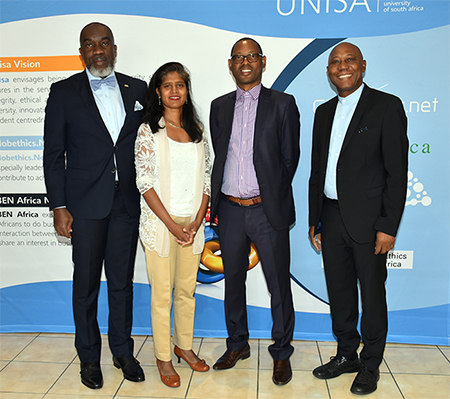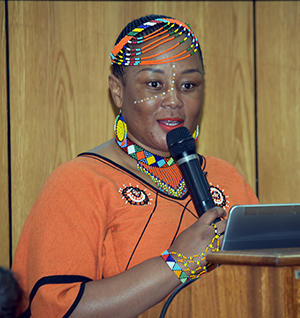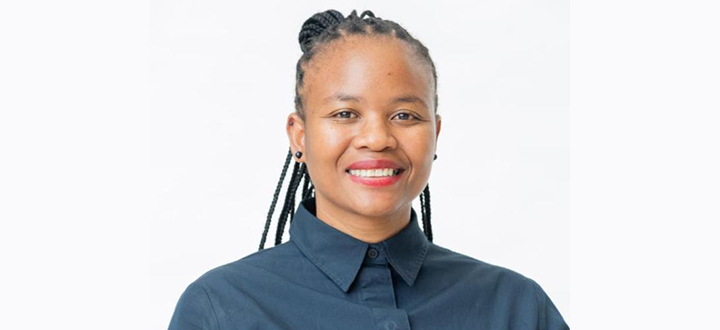Leading change
'Mission possible' continues apace for ethics@Unisa
Unisa’s already robust ethics drive received yet another boost this week with a four-day training workshop on ethics in higher education, presented in collaboration with Globethics and the Stadio Multiversity, and attended by staff from across the university and representatives of other higher education institutions.

Speaking at the opening of the workshop, held from 25 to 28 September at the university’s main campus in Muckleneuk, Professor Khehla Ndlovu, Unisa Vice-Principal: Strategy, Risk and Advisory Services, placed the theme of the workshop, ‘Ethics in higher education’, in context. ‘A common challenge we all face,’ he said, ‘is how to produce ethical graduates in South Africa and the continent. My hope is that after this four-day workshop attendees will be equipped to shine the beacon of ethics wherever they are.’
No ethical act too small
The beacon symbolism, said Ndlovu, was most appropriate as Unisa is this year celebrating 145 years as a beacon lighting the way with the ultimate gift of knowledge. ‘This anniversary also coincides with the centenary of the birth of Nelson Mandela,’ he continued, ‘who happens to be a Unisa alumnus. In honouring Madiba’s life and legacy, and our rootedness in South Africa and the African continent, we must reiterate the message of Nelson Mandela: “No matter how small the action, you can help to change the world”.’ Ndlovu concluded by saying that the workshop sets out to find ways to stop the erosion of ethics in society, and to work on producing ethical graduates for an ethical society. ‘I believe we are on the right path. I trust that you will engage further on the key issues during your time at this workshop.’

From left: Prof Chidi Onya, Nadia Balgobin, Prof Khehla Ndlovu, Prof Obiora Ike
In his keynote address Professor Obiora Ike, executive director of Globethics, explained why there can be no sustainable development without ethics in higher education. He touched, among others, on the global and local contexts and their concomitant challenges, the Sustainable Development Goals 2030, specifically that of quality education, the fact that Africa scores the lowest in the world on the Human Development Index, and statistics around completed schooling and tertiary education in South Africa.
 Ethics a long-term investment
Ethics a long-term investment
‘As a first step we must get institutions of higher education to buy into an ethics agenda,’ said Ike. ‘There cannot be a discrepancy between mere lip service and the reality. We must empower educators to become ethics models, and to instill the principles in others. Whichever way you want to look at it, there is no sustainable development without ethical dimensions. Together we can achieve a lot, but it must be borne in mind that the problems of the world cannot be solved in one day. An investment in ethics is a long-term investment.’
In conclusion Ike said that in the reinvention of Africa there should not just be investment in education regarding knowledge, but also education regarding character.
Other presentations during the opening session were those of Zibuyile Jafta, Deputy Director: Ethics at Unisa (pictured left), who spoke about Unisa’s commitment to ethics and higher education, and Nadia Balgobin, Globethics senior associate, who outlined the training objectives and outcomes of the workshop.
The afternoon session saw presentations on how to change mindsets by Professor Chidi Onya, and on reasserting institutional values at Unisa by Dr Meiya Nthoesane.
* By Philip van der Merwe
Publish date: 2018-09-28 00:00:00.0


 Black industrialist and founding CEO of Capebio to deliver keynote address at Innovation Festival
Black industrialist and founding CEO of Capebio to deliver keynote address at Innovation Festival
 Unisa connects with Giyani community to define tomorrow
Unisa connects with Giyani community to define tomorrow
 Dr Nasiphi Moya to give keynote address at Unisa Innovation Festival
Dr Nasiphi Moya to give keynote address at Unisa Innovation Festival
 Unisan pens a personal and moving reflection on Luthuli's legacy
Unisan pens a personal and moving reflection on Luthuli's legacy
 Unisan's PhD research paper lauded at international conference
Unisan's PhD research paper lauded at international conference